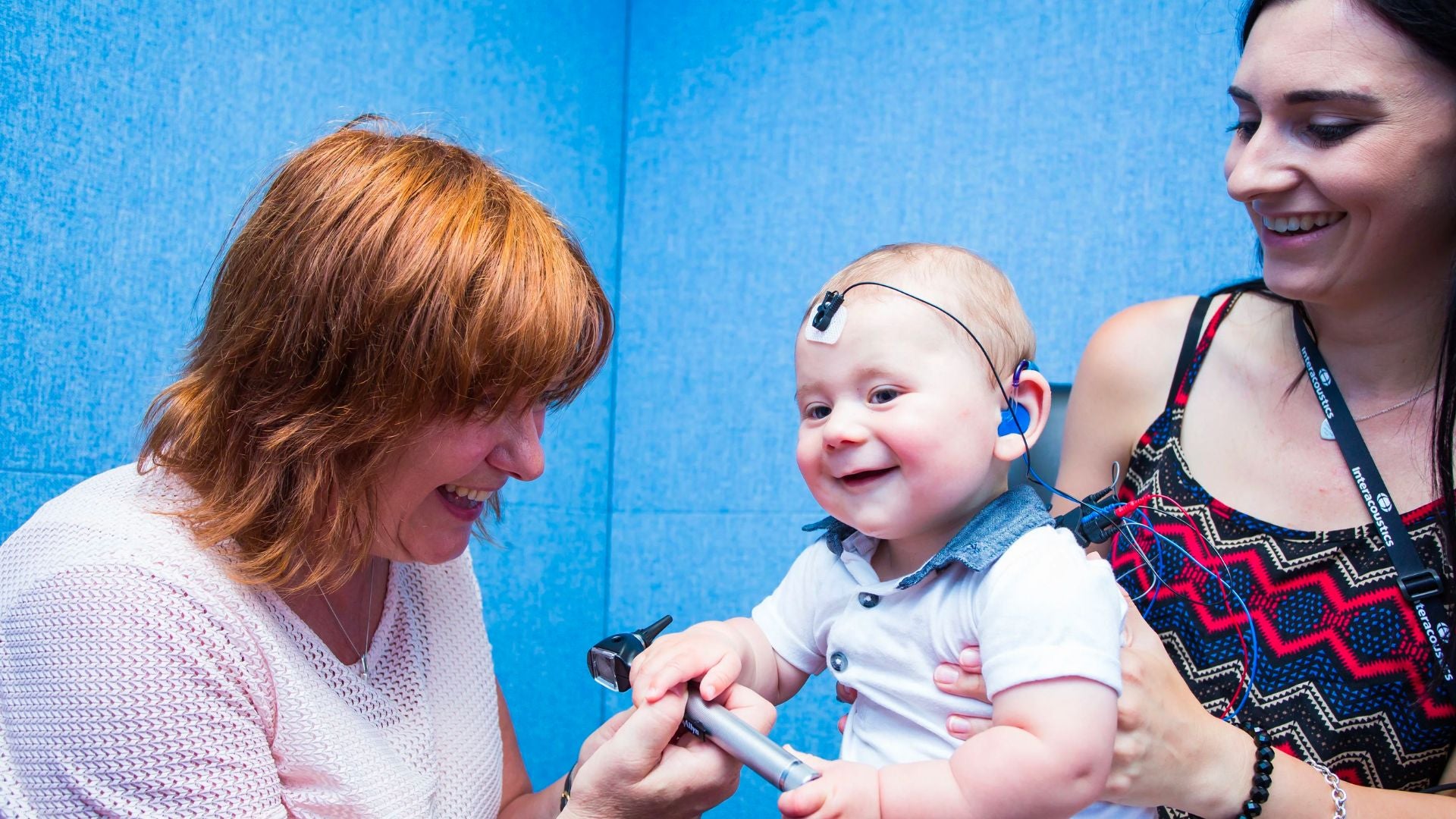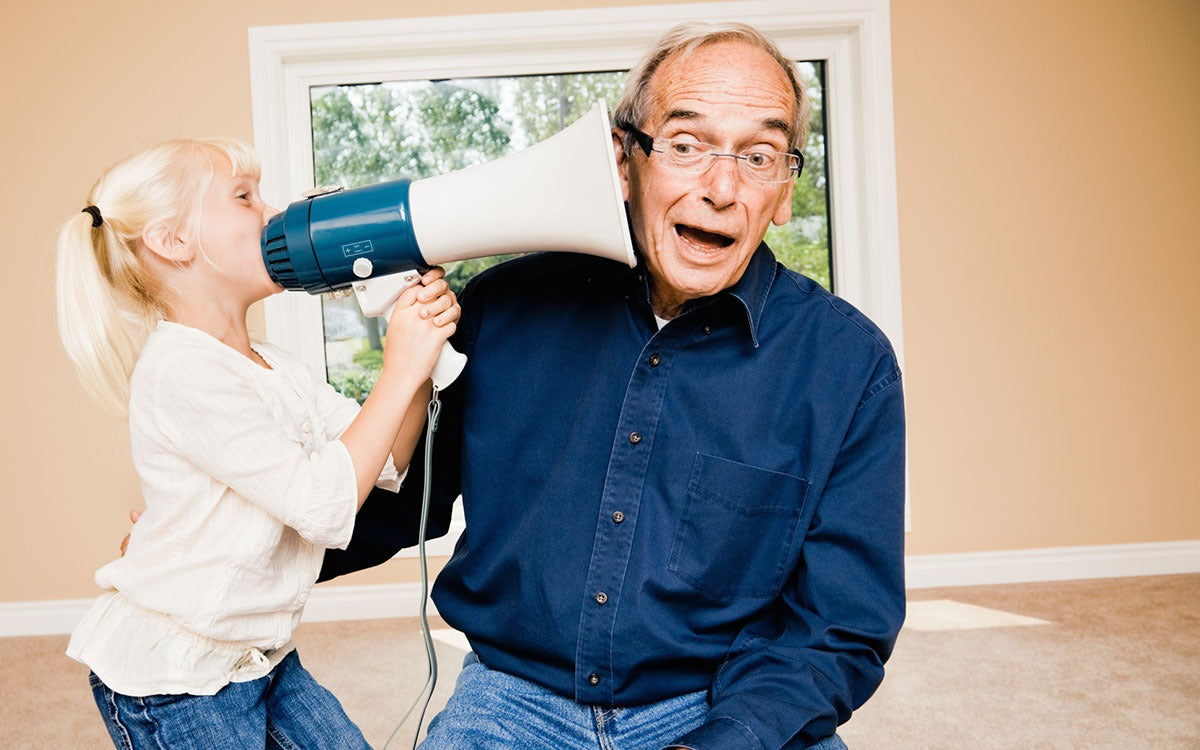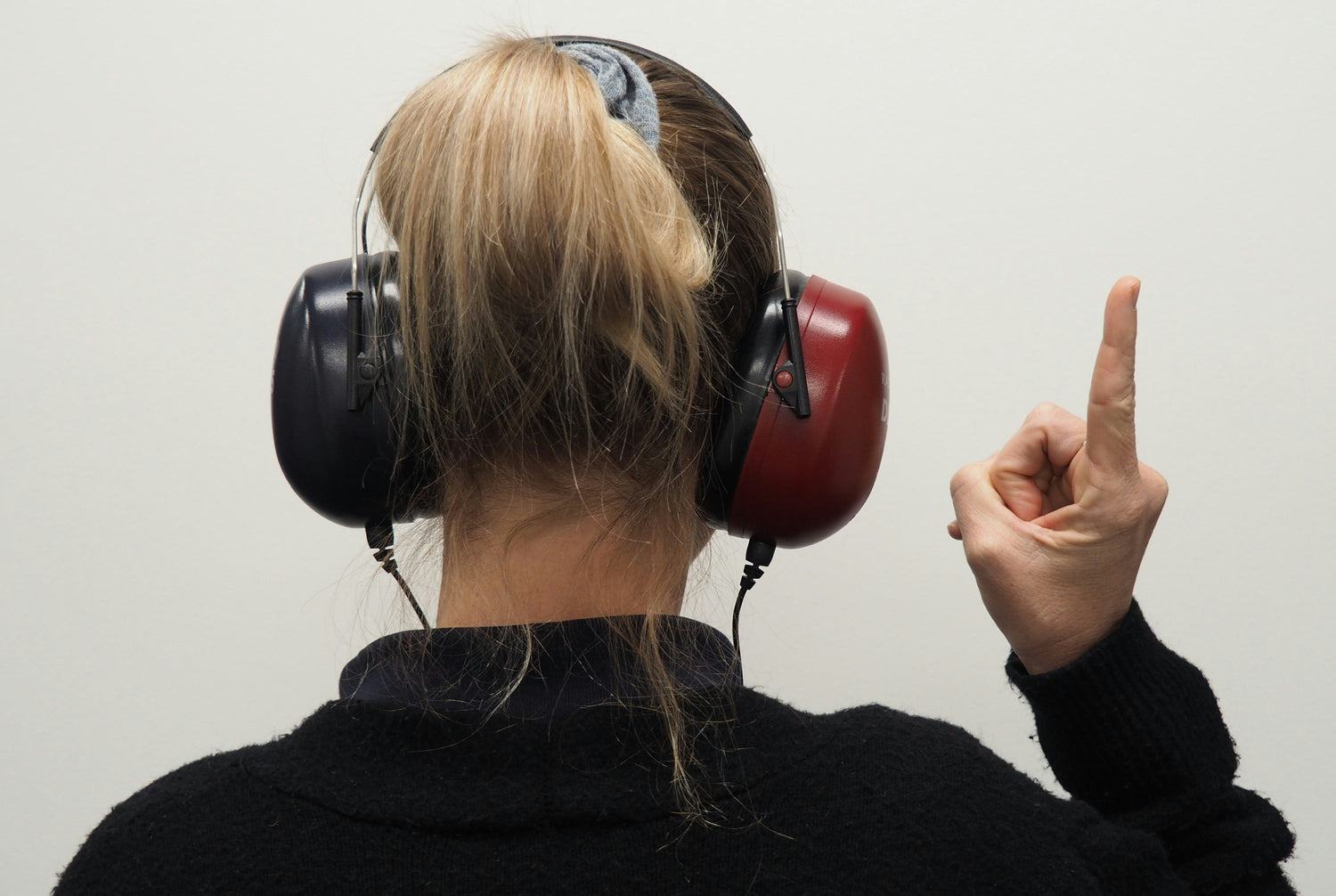As a parent, you no doubt feel concerned about your baby's development. There are so many benchmarks and milestones to look for when you have a baby. There’s holding their head up, smiling, sitting without support, crawling, and walking, among many others.
One of the biggest milestones parents look forward to is babbling and talking. Hearing plays a critical role in these two milestones. You may be wondering how to tell if your baby can hear properly.
Good Hearing Checklist
Even if your baby passed the hearing screening, it is still important to check your baby's hearing often. The list below will help you keep track of your baby's hearing as he or she grows.
- Newborn to eight weeks of age:
- Startles or widens their eyes at sudden noises nearby
- Is awaken or stirred from sleep by noise
- Reacts to loud sounds
- Smiles or calms down when spoken to
- Knows your voice and calms down if crying
- Eight weeks to four months:
- Looks towards direction of sound
- Responds to tones of voices
- Like toys that make sounds
- Pays attention to music
- Can become upset by loud sounds
- Five to 12 months:
- Turns head towards known voices or sounds
- Responds to their own name
- Listens when spoken
- Responds to simple requests, like “come here”
- Begins to babbles: "ba ba", "da da", "ma ma"
- 12 to 18 months:
- Begins to imitate simple words, such as "mama", "Bye-bye"
- Consistently responds to both soft and loud sounds
- Points to favorite toys, people or foods when asked
- Follows simple spoken directions: "get the ball"
- "Bounces" to music
- 18 to 24 months:
- Has a good vocabulary of at least 20 words
- Understands simple directions, such as ‘Give mummy the ball’
- Combines two or more words: "more juice," "what's that?"
- Listens to simple stories and songs
- 2 years to 3 years:
- Has a good vocabulary of at least 40 words
- Uses sentences with two or three words
- Follows two steps instructions, such as "Get the ball, and put into the box"
- At 2 years, the child's speech is understood some of the time (25%-50%)
- At 3 years, the child's speech is understood most of the time (50%-75%)
If you have any concerns about your child's hearing, at any age, call your baby's pediatrician.
How's Your Baby's Hearing Checked?
To check your baby's hearing, hearing tests are typically conducted on newborns or within the first few weeks of their life. These hearing tests can be performed using the methods of Otoacoustic Emission (OAE) or Auditory Brainstem Response (ABR).
-
Otoacoustic Emission (OAE):
In the OAE test, a hearing care professional will insert a small, soft probe into the baby's ear canal. The probe will emit gentle sounds into the baby's ear and measure the sound response produced by the hearing cells in the cochlea (inner ear). If a sound response is detected, it indicates normal hearing function in the baby. -
Auditory Brainstem Response (ABR):
The ABR test involves placing electrodes on the baby's head, which will record the electrical activity of the auditory nerves when gentle sound stimuli are presented through headphones or earphones. This test monitors the auditory nerve responses up to the brainstem. The results of the ABR test will indicate whether there is a normal response from the baby's auditory system.
These hearing tests are non-invasive and are usually conducted when the baby is asleep or calm. If your baby passes the hearing test, it means there is a normal hearing response at the time of the test. However, it is important to remember that this is just an assessment of hearing at that moment, and it is important to continue observing and monitoring your baby's hearing development during their growth.
A small number of babies who pass the newborn hearing screening may develop hearing loss later in life. That's why it's important to pay special attention to your child's hearing until the age of 3 years old.




